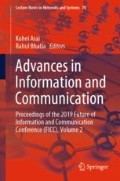Abstract
This paper describes several variants of SPCG (Splitting Up Conjugate Gradient) method suitable for parallel computing and evaluates the performance and the speed of convergence on a distributed-memory multicomputer. SP (Splitting-Up) preconditioner can be easily parallelized because other dimensions except for one dimension are independent. Among the variants, one of incomplete SPCG method, which does not carry out one of three tridiagonal matrix solvers, achieves the best performance, and this method is about 20 times faster than one-process version of the SPCG method on 32 CPU cores of the multicomputer.
Access this chapter
Tax calculation will be finalised at checkout
Purchases are for personal use only
References
Saad, Y., Schultz, M.H.: GMRES: a generalized minimal residual algorithm for solving nonsymmetric linear systems. SIAM J. Sci. Stat. Comput. 7(3), 856–869 (1986)
Wakatani, A.: An incomplete splitting-up conjugate gradient method for parallel computing. Int. J. Comput. Technol. Appl. 7(5), 236–243 (2016)
Osaka University. http://www.hpc.cmc.osaka-u.ac.jp/sx-ace/
Duff, I.S., Meurant, G.A.: The effect of ordering on preconditioned conjugate gradients. BIT Numer. Math. 29(14), 635–657 (1989)
Odanaka, S., Nogi, T.: Massively parallel computation using a splitting-up operator method for three-dimensional device simulation. IEEE Trans. Comput. Aided Des. Integr. Circ. Syst. 14(7), 824–832 (1995)
Wakatani, A.: A parallel and scalable algorithm for ADI method with pre-propagation and message vectorization. In: Parallel Computing, vol. 30, pp. 1345–1359 (2004)
Acknowledgements
We are grateful to Professor Tatsuo Nogi of Kyoto University for helpful discussions. I would like to express my gratitude to both professors. Tshis work was supported by JSPS KAKENHI Grant Number 18K02920. This research was also partially supported in part by MEXT, Japan.
Author information
Authors and Affiliations
Corresponding author
Editor information
Editors and Affiliations
Rights and permissions
Copyright information
© 2020 Springer Nature Switzerland AG
About this paper
Cite this paper
Wakatani, A. (2020). Hybrid Parallel Approach of Splitting-Up Conjugate Gradient Method for Distributed Memory Multicomputers. In: Arai, K., Bhatia, R. (eds) Advances in Information and Communication. FICC 2019. Lecture Notes in Networks and Systems, vol 70. Springer, Cham. https://doi.org/10.1007/978-3-030-12385-7_82
Download citation
DOI: https://doi.org/10.1007/978-3-030-12385-7_82
Published:
Publisher Name: Springer, Cham
Print ISBN: 978-3-030-12384-0
Online ISBN: 978-3-030-12385-7
eBook Packages: Intelligent Technologies and RoboticsIntelligent Technologies and Robotics (R0)

